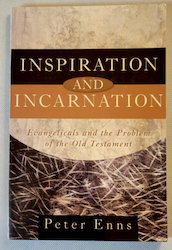The apparent commands of God in the Old Testament to commit genocide have long troubled me, as they should trouble any thoughtful and compassionate person. (I hope I am both!) How could a God of love command such atrocities?
I think this problem can be resolved with God’s good name intact, if we understand the Bible rightly.
But I am disturbed at the unconsciously callous attitude of christians trying to justify these commands.
Genocidal commands
The statements in the Old Testament are quite clear.
In Deuteronomy 3:1-7, God orders the Israelites to destroy Og KIng of Bashan and his people, and so: “We completely destroyed them, as we had done with Sihon king of Heshbon, destroying every city—men, women and children.”
In Deuteronomy 7:1-6, God orders the destruction of seven Canaanite nations, saying “you must destroy them totally. Make no treaty with them, and show them no mercy.”
Then in Deuteronomy 20:16-18 there is this command: “in the cities of the nations the Lord your God is giving you as an inheritance, do not leave alive anything that breathes. Completely destroy them”.
Explaining the inexplicable
It is obvious those times, about 3,200 years ago, were brutal. There was no Geneva Convention. But right from when I was first a teenage christian, these passages troubled me deeply. I could accept that as God’s creation, he had the right to treat us as his own. But I couldn’t accept that a loving God would:
- exercise his ownership in ways that no loving human parent could countenance, and
- ask fallible and emotional human beings to do his dirty work, and so perform acts that would be punishable today as genocide and war crimes.
I put the problem on the backburner for many years, then began to pray for God’s answer. I believe he led me to books (see below) that showed me:
- The genocide didn’t happen. The book of Joshua tells two different stories – chapters 1-12 describe a brutal invasion and almost total destruction, but chapters 13-24 say that most cities weren’t destroyed, and the settlement was more by assimilation than conquest.
- The archaeology shows that Israelite numbers were nowhere near those given in the Bible, and supports the slow assimilation as described in Joshua 13-24.
- We better understand the Old Testament not as an accurate and inerrant record of historical fact and theological truth, but rather as a record of how initially pagan religious belief “is gradually purged and enlightened till it becomes the religion of the great prophets and Our Lord Himself.” (CS Lewis)
Thus I can believe that God didn’t give those commands. They were the way the Israelites thought at the time, and God hadn’t finished with them yet. His end point was the way of Jesus: turning the other cheek (Matthew 5:39), forgiving (Matthew 6:12) and loving our enemies (Matthew 5:44).
That is what God is like.
Defending the indefensible
But many christians cannot bring themselves to believe the Bible contains teachings which reflect the way people thought before God had taught them otherwise. This is contrary to their doctrine of the Bible, even though (1) it is the way the Bible reveals itself to be (it seems to me and to most scholars), and (2) there isn’t really a clear teaching supporting the inerrant view.
So rather than give up their dogmatic view, many christians try to justify the appalling behaviour attributed to God.
Recently I heard a respected Bible teacher explain the necessity of destroying these nations and killing these people as “excising a cancer”. Apparently God had no other choice to protect the spiritual purity of his people.
Since then, two other preachers have repeated the phrase. And hundreds of people heard the statements and apparently accepted them.
The thought made me feel both sick-at-heart and angry. Christians believe Israeli soldiers took sword, spear, knife and club to mothers, babies, grandparents as well as men, in a bloody rampage. And are willing to call this “excising a cancer” and say it was OK for God to order them to do it.
(Could not a sovereign God find a more loving way?)
Precious lives made in the image of God being compared to a surgical operation to remove some non-conscious, non-feeling malignant cells!
The remedy is worse than the problem
To my mind, God is being portrayed as a moral monster to protect a doctrine of the Bible that is not justified by the external facts, and not justified by the Bible itself.
Christians are allowing themselves to appear, and even to be, callous and insensitive.
If some people group was a threat to christianity today, would we be OK to “excise that cancer”? If not, why was it OK back then?
And non-believers are turned away because they, quite reasonably, cannot believe in such a God.
Surely it is time ….
….. to re-examine our response to these troubling events. Surely we need to accept the Bible for what it is (an unfolding revelation written by fallible human beings but graciously used by God to reveal truth) rather than our dogma of what we’d like it to be?
Helpful books

Wm Dever


R Friedman

Pete Enns

Hays & Ansberry

D Lamoreaux
Related Posts
Graphic: Free Bible Images and Rachel-Esther via Compfightcc, combined by unkleE.






Do you think its possible that certain passages in the Bible are not the word of God, but of humans invoking the name of God for political reasons ?
Yes I do, but that answer requires some explanation.
Many christians believe the Bible to be the “Word of God”, i.e. a book more or less written under God’s supervision. But before I am willing to come to that conclusion, I want to look at it as an ancient text and see if it merits the exalted staus of “Word of God”.
I have read a lot on the subject and I think the Old Testament can’t be the word of God in that sense:
So lots of it has a political or national purpose. In places it presents God as they wanted him to be (their tribal God who would help them beat all the other nations around them). Nevertheless, it prepared them for the coming of Jesus, which I as a christian believe to be the central event in the history of the world.
” Nevertheless, it prepared them for the coming of Jesus, which I as a christian believe to be the central event in the history of the world.”
But the Jews don’t believe that Jesus is their Messiah do they ? Did Christianity “hijack” the OT for their own purposes, or did the Jews get it wrong about Jesus ?
Depends on who you’re talking to.
Some Jews believe Jesus was their Messiah, but most don’t. it’s impossibloe for me to know for sure, but I hear that many Jews are very secular and don’t believe in God any more, though they do believe in retaining Jewish culture. Of course others do still believe, some very traditionally, others more modern. Most Jews therefore regard Jesus as mistaken, or perhaps worse (some no doubt jaundiced after the poor treatment they have received from nominally christian nations over centuries) but some believe he was a prophet in the long line of prophets, just not divine.
Obviously christians, on the other hand, believe Jesus and the NT were God’s intention all along, and so they are interpreting the OT correctly. However while I agree that the OT points to Jesus, I think most christians DON’T interpret the OT correctly and miss a lot of what Jews know about it.